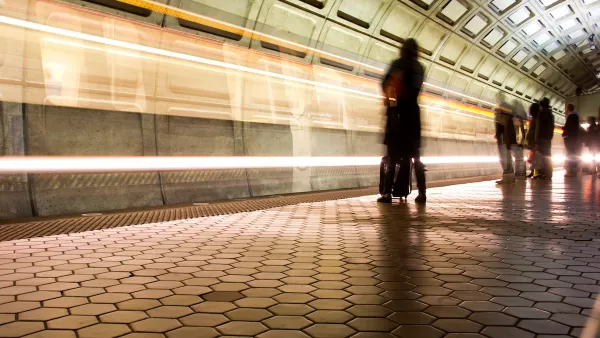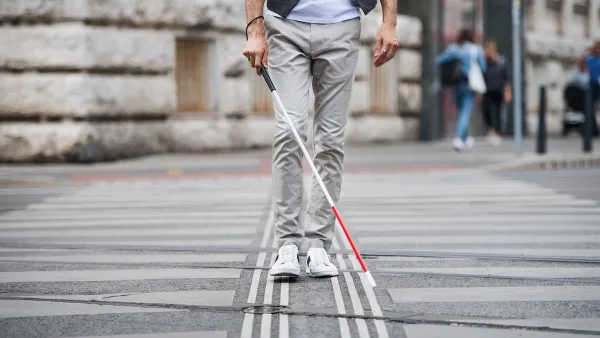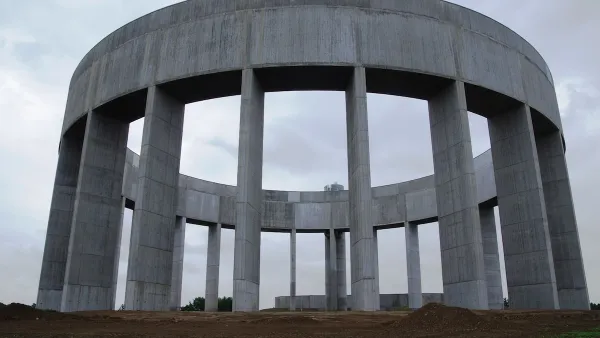99% Invisible talks with Chris Downey, an architect who lost his sight three years ago and who continues to work.
"'Beethoven continued to write music, even some of his best music, after he lost his hearing What's more preposterous, composing music you can't hear, or designing architecture you can't see?' Chris Downey had been an architect for 20 years before he lost his sight. It would be understandable to think that going blind would mean the end of his career, but that turned out not to be the case at all."
By using a computer that talks really fast to him, he can still create architectural plans. He talks about how his lack of sight has changed the way he designs and thinks about buildings.
FULL STORY: Episode 10- 99% Sound and Feel

Analysis: Cybertruck Fatality Rate Far Exceeds That of Ford Pinto
The Tesla Cybertruck was recalled seven times last year.

National Parks Layoffs Will Cause Communities to Lose Billions
Thousands of essential park workers were laid off this week, just before the busy spring break season.

Retro-silient?: America’s First “Eco-burb,” The Woodlands Turns 50
A master-planned community north of Houston offers lessons on green infrastructure and resilient design, but falls short of its founder’s lofty affordability and walkability goals.

Test News Post 1
This is a summary

Analysis: Cybertruck Fatality Rate Far Exceeds That of Ford Pinto
The Tesla Cybertruck was recalled seven times last year.

Test News Headline 46
Test for the image on the front page.
Urban Design for Planners 1: Software Tools
This six-course series explores essential urban design concepts using open source software and equips planners with the tools they need to participate fully in the urban design process.
Planning for Universal Design
Learn the tools for implementing Universal Design in planning regulations.
EMC Planning Group, Inc.
Planetizen
Planetizen
Mpact (formerly Rail~Volution)
Great Falls Development Authority, Inc.
HUDs Office of Policy Development and Research
NYU Wagner Graduate School of Public Service




























